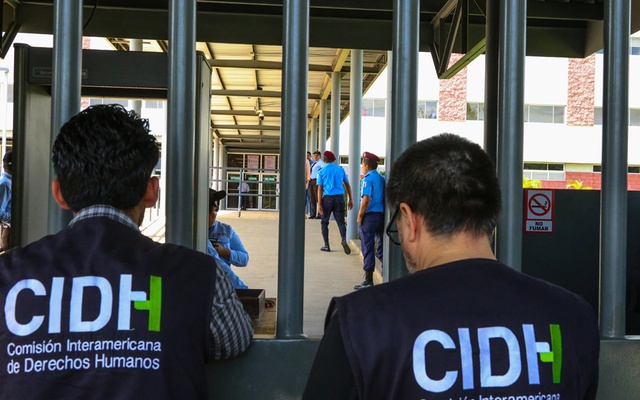The EMBI has been declining for the DR more sharply than for the LA average.
Sovereign credit risk, as measured by the Emerging Markets Bond Index (EMBI), has been declining for the Dominican Republic more sharply than for the Latin American and Caribbean average.
This credit risk for the Dominican Republic was 416 basis points at the end of 2022, rose to 369 basis points in March 2023, and then fell to 303 basis points in June 2023, 319 basis points in September 2023, 247 basis points at the end of 2023, and 221 basis points in April 2024.
In contrast, the credit risk for Latin America was 416 basis points at the end of 2022, rose to 447 basis points in March 2023, then fell to 405 basis points in June 2023, 404 basis points in September 2023, 366 basis points at the end of 2023, and 315 basis points in April 2024.
All countries, except Bolivia, Ecuador and Panama, experienced declines in the EMBI, especially towards the last quarter of 2023, in a situation that coincides with what has been seen in other countries in emerging regions. However, in the case of the Dominican Republic, the reduction has not only been one of the most pronounced, but it is also among the countries with credit risk levels below the regional average.
However, the country must continue to advance to reach the best positions occupied at the end of 2023 by Costa Rica (239 points), Guatemala (213 points), Brazil (201 points), Paraguay (190 points), Peru (162 points), Chile (135 points) and Uruguay (85 points).
In the case of Bolivia, its credit risk, which used to remain somewhat above the regional average, quadrupled during 2023 and closed the year at 2,233 basis points, as a result of the shortage of international reserves and high public spending, which makes the market perceive a lower probability of compliance with debt repayments. This is a lesson to be learned.
The EMBI measures the difference in the rate paid by dollar-denominated bonds issued by emerging countries and American bonds considered zero risk and is defined as the possibility of a nation not meeting its external debt payments, so if the risk increases due to different social, political or economic causes, the rating given by the different entities in charge of giving these concepts at a global level worsens.
The fact that the EMBI index for the Dominican Republic is lower than that of many countries in the region indicates that there is a lower risk of the Dominican State defaulting on its financial obligations, which favors the business climate in the Dominican Republic, since economic agents, both external and internal, take into account many factors to optimize their profits, and both interest rates and country risk indicators are two basic components for decision-making regarding investment.
This makes the EMBI an indicator that must be taken into account for the development of an economy, since it serves to give investors a clearer and more secure perspective on the level of risk of their investments in the country.















